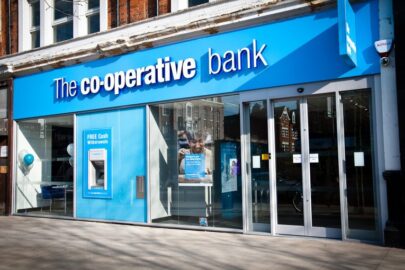The Co-operative Bank has posted a loss before taxation of £204.2m for the first six months of 2015 – £127.2m higher than in the first half of 2014.
Reasons cited for the loss include net losses on asset sales of £38.2m, an overall net impairment gain of £44.6m and an increase in project costs of £33.1m, to £101.9m, as the bank deals with the historic underinvestment in systems and processes.
In addition, other loss drivers include £49.0m of conduct and legal risk charges, including increases to existing provisions for packaged accounts, mortgages and CCA; £41.1m of non-interest income and operating expenditure of £259.6m. The bank said reducing cost base reflects the progress made in the cost reduction programme, focused on the improvement and simplification of bank processes in addition to third party savings and branch rationalisation.
Charges in respect of the Financial Services Compensation Scheme (FSCS) Levy have reduced on the comparative period to £20.5m.
In the first half of 2015, 12% of mortgages were originated directly and 88% through intermediaries; this compares to 62% through intermediaries during the same period last year.
The bank said that a “focused drive” in intermediary introduced mortgages coupled with increased marketing of mortgage offerings has led to the level of completions for the six months to 30 June 2015 being at a similar level for the 12 months to 31 December 2014.
Total advances reached £1.11bn over the first six months of the year.
Applications for lending at LTV higher than 85% increased through 2015 compared to 2014 which is reflected in the average LTV% of completions.
Niall Booker, the bank’s chief executive, admitted that the transformation of the organisation remains challenging and a work in progress.
He said: “We have made good progress and become more resilient every day but this will remain a continued focus for the management team for some time. We have also made progress separating the infrastructure of the Bank from The Co-operative Group and we have begun the work to migrate our IT infrastructure to IBM, which will strengthen our technology platform.
“We have delivered a number of important initiatives in line with our strategic plan and, although it remains early days, we are heading in the right direction. Our cost reduction targets are a challenging but important part of our plan.
The performance of the Retail Bank is improving and its future state is becoming clearer. We need to stay focused on keeping our products simple, maintaining our high level of service, securing the resilience of our IT platform, further embedding our Ethical Policy and reinforcing our Risk Management Framework.
“Looking ahead, the deleverage of Non-core assets remains a key focus to improving capital resilience under stress and to delivering the plan. Future sales do, of course, continue to remain vulnerable to some level of market risk, which has increased over recent months, but we remain on track to reduce total RWAs to below £7.5bn by the end of 2017.
“Our plan aims to meet the expectations of all our stakeholders. Firstly, it de-risks and reduces the possible burden on the taxpayer and any threat to the financial system as a whole. Secondly, over time it allows us to be an economically viable standalone bank, distinguished by our adherence to values and ethics.
“Finally, it rebuilds us as a bank that can play a role in any future consolidation in the marketplace. I am grateful for the support of colleagues, customers and shareholders as we continue to deliver against our plan and progress our turnaround.”
